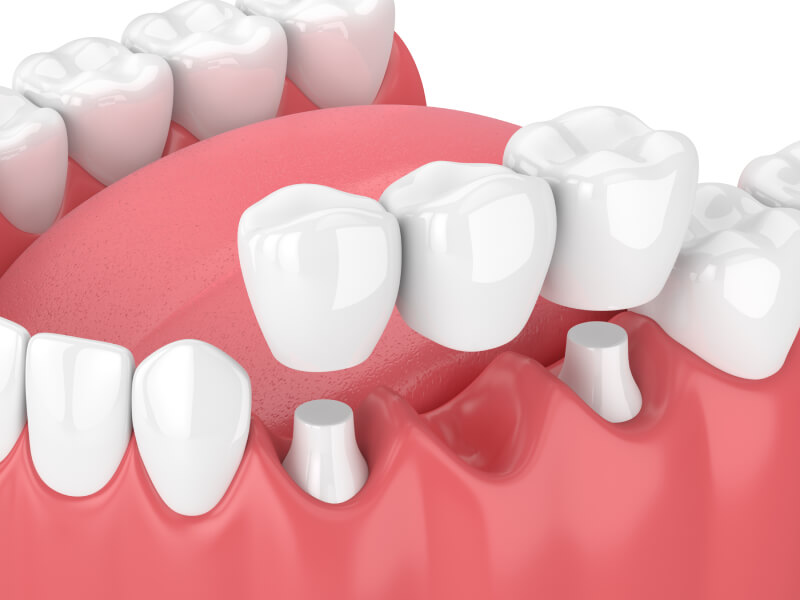Missing teeth can be caused by multiple factors, such as an extraction due to dental decay, injuries, or gum disease. A missing tooth can also occur due to genetic conditions where some teeth fail to develop.
Missing teeth can interfere with the ability to eat or speak and may cause neighboring teeth to shift into the spaces left behind. In order to keep all of your teeth where they should be, the common treatments for missing teeth include dental implants, dentures, and bridges.
Dental decay is one of the leading causes of missing teeth and occurs when food particles mix with saliva and bacteria. A sticky film called plaque adheres to the teeth, and if it is not removed by daily brushing and flossing, it can harden and form tartar.
The accumulation of tartar and plaque leads to gum inflammation and dental decay. Dental decay is usually referred to as a cavity and can lead to a dental abscess or infection if left untreated.
Plaque accumulation can be caused by multiple factors, such as:
- Having a sugary diet (eating soda and candies)
- Smoking
- Brushing inadequately (too harsh or with not enough frequency)
- Not flossing regularly
Some people are born without certain teeth because of genetic conditions like hypodontia. In such cases, the most common missing teeth are wisdom teeth, upper lateral incisors, and second premolars. This condition may also cause jawbone underdevelopment.
Hypodontia is an inherited condition that causes dental underdevelopment leading to missing teeth. Up to 8% of the general population has this condition.
In some cases, children can develop hypodontia if exposed to radiation or chemotherapy during their tooth development phase. However, anyone can be born with this condition.
The most common sign of hypodontia is being born with missing teeth. People with this condition may also have large spaces between teeth or teeth smaller than average. Hypodontia could be a symptom of other genetic disorders, such as ectodermal dysplasia.
Since anyone can be born with hypodontia, family medical history is the main cause of its development. However, hypodontia can happen alongside other conditions or genetic disorders, such as:
- Ectodermal dysplasia
- Down syndrome
- Cleft palate
Dr. Sunitsch will review your medical history and oral state during your consultation. If he suspects hypodontia, he will take X-rays and perform the needed medical exams to provide a diagnosis.
No matter the cause of missing teeth, multiple treatments are available to replace them. Treating missing teeth will protect your neighboring teeth from shifting and will allow you to eat and smile comfortably. Treatment options include the following.
As the name states, it “bridges” the gap where your teeth are missing and replaces them with artificial teeth. This treatment intends to recover biting and chewing capacities while rebuilding the patient’s smile. Dental bridges are usually made of porcelain or metal and aim to match the natural color of the teeth.
Dental implants are artificial tooth roots made of a metal screw-like device that replaces damaged or missing teeth. They are fixed into your jawbone through surgery and are a long-term solution for missing teeth.
Dentures are removable dental prosthetics for missing teeth and surrounding tissues made of acrylic resins, sometimes combined with metal attachments.
Teeth are meant to be together, and even if you don’t notice changes after missing a tooth, gaps could eventually impact eating and speaking.
Facial muscles could also end up damaged since irregular chewing may apply uneven pressure. Besides, missing teeth may change your facial structure. Replacing missing teeth can have a tremendously positive impact on your overall health and confidence.
Maintaining a dental health routine can help prevent cavities, tooth loss, and bad breath. Some of Dr. Sunitsch's recommendations to achieve this are:
- Brush your teeth twice daily with the proper technique.
- Brush your tongue.
- Floss twice a day.
- Avoid sugary snacks.
- Rinse your mouth after drinking coffee or smoking to prevent staining.
- Use fluoride toothpaste.
- Apply dental sealants for children.


